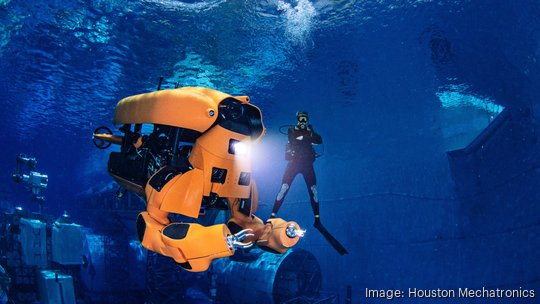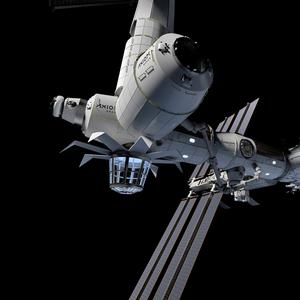
One of Houston’s newest public companies reported a net loss for 2022, but executives said more revenue generation would be on the horizon.
Nauticus Robotics (Nasdaq: KITT) reported a net loss of $33.2 million with an operating loss of $18.2 million for the 2022 fiscal year. Both figures are larger losses than a year earlier, when the company recorded a $15.1 million net loss and a $6.5 million operating loss for 2021.
Meanwhile, the company's revenue increased 33% year over year to $11.4 million in 2022.
Nauticus produces robotics and artificial intelligence products for offshore uses including but not limited to installation repair and undersea mapping. CEO and co-founder Nicolaus Radford said during a March 28 earnings call that materials shortages hampered the production of its primary products, the unmanned ship Hydronaut and the undersea drone Aquanaut.
“We’ve successfully resolved these challenges and currently expect all units to be completed by the end of the second quarter, with the first unit starting in water commissioning this week,” Radford said. “While we’re disappointed in the delays we’ve experienced in the delivery of our commercial units, demand for our offering remains very strong.”
Nauticus CFO Rangan Padmanabhan added that the completion of the Aquanaut and Hydronaut units should put the company in a position to generate commercial revenue toward the end of 2023. So far, all of Nauticus' revenue comes from defense contracts, including the $2.5 million Padmanabhan expects in the first quarter of 2023.
The results follow Nauticus beginning 2023 with its first international expansion into the North Sea, as the company opened bases in Stavanger, Norway, and Aberdeen, Scotland. In response to an analyst question, Radford said development for the robots in these regions is moving quickly.
“I’d say the North Sea is a quick first-mover market for us,” Radford said. “We are as eager as you are to get metal cutting now.”
Asked about results from the company’s first water testing, Radford said potential clients were interested in the robots’ data-sensing capabilities and hinted at further expansions into that sector.
“The data that we produce, just by nature of the robot, was something that [clients] weren't necessarily used to, and the quality and the timeliness in which it was processed,” Radford said. “From my impression, it started getting the wheels turning on the far-reaching application we might have based on the sensor suite that's just inherent to the robot.”
Nauticus’ operations in the North Sea will help the company expand its robotics to clients with significant offshore energy infrastructure there. The robots will help clients reduce dependence on large, carbon-intensive ships and remote operating vehicles to service installations.
The company went public through a SPAC merger in September 2022. Nauticus merged with New York-based CleanTech Acquisition Corp., a special purpose acquisition company looking for deals in clean energy and climate tech, in a deal valued at $561 million. Nauticus' stock began trading on Sept. 13.
A team of ex-NASA engineers founded Nauticus as Houston Mechatronics in 2014. The company develops subsea robots and works with government and commercial clients through a robotics-as-a-service model. Radford previously led spaceflight and defense robotics engineering efforts while working at NASA's Johnson Space Center. According to filings with the Securities and Exchange Commission, Nauticus holds a patent on vehicles that can be operated remotely or autonomously.
In October, Nauticus landed a multimillion-dollar defense contract with the U.S. Defense Innovation Unit to develop an amphibious, unmanned unit.





